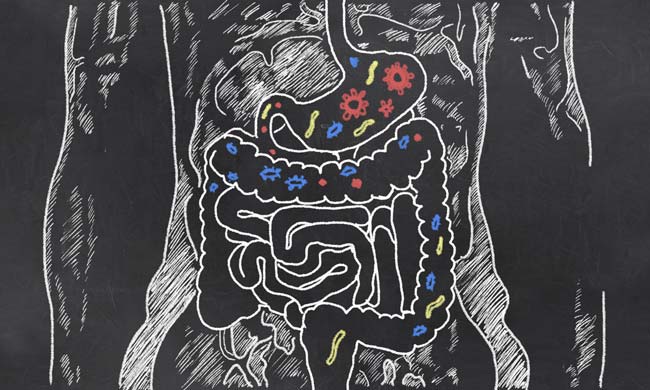…it turns out, quite a lot. We usually give little thought to our gut, except for when it’s not acting right. Then it’s at the forefront of our mind! But more and more, researchers are uncovering ties between our gut health and our overall health.
So, what exactly should you know about your gut? Let’s take a look at how the gut works and how it affects the rest of the body.
Gut health basics
When we’re talking about gut health, we’re talking about the digestive system. The digestive system, or GI system, plays a vital role in keeping us healthy and strong.
Essentially, this system helps provide the body fuel as it transforms food and drink into usable forms of energy and nutrients. There are parts of the digestive system throughout the body:
- Mouth
- Esophagus
- Stomach
- Small and large intestines
- Anus
- Liver
- Pancreas
- Gallbladder
Food enters the body through the mouth and exits the body through the anus as waste — and along the way, takes many different stops.
With all of those parts, it’s no wonder that our gut sometimes causes us trouble!
When gut health goes wrong
We all occasionally deal with tummy troubles, from cramping to nausea to diarrhea. But many Americans also suffer more severe issues with gut health.
In fact, the National Institutes of Health reports that as many as 60 to 70 million Americans have some type of digestive disorder.
Common digestive conditions include:
- IBS (irritable bowel syndrome)
- Lactose intolerance
- Celiac disease
- GERD
- Crohn’s disease
- Diverticulitis
- Fecal incontinence
- Peptic ulcers
Beyond those conditions, many people also suffer from chronic or periodic constipation, acid reflux or diarrhea.
Gut health & overall health
Have you ever thought about how your gut impacts your health and wellness overall? Well, it does — in a big way.
Our gut contains many bacteria, both good and bad. Within your body’s “microbiota” are 300 to 500 different kinds of bacteria, which contain millions of genes.
And your microbiota is different than everyone else’s. Much like a fingerprint, it’s unique and different.
The individual components of your gut, and the bacteria found within it, play a large role in determining how your body reacts to things it is exposed to.
In recent years, researchers have uncovered links between gut health and overall health. They found that balance of gut bacteria in those who are healthy is different than the gut bacteria of those with certain medical conditions.
Specific ties have been found between gut bacteria and the risk of becoming obese and developing diabetes, depression, heart disease, some digestive diseases, arthritis and certain types of cancer.
How to boost your gut health
So what can you do to make sure your body contains the right balance of bacteria? While we don’t control every aspect of our gut health, there are steps you can take to positively impact it.
Practicing good lifestyle habits is a major step in the right direction. Start by:
- Eating a balanced diet. Load up your plate with plenty of fruits and vegetables, whole grains, and lean proteins. On the flip side, limit your consumption of foods that are high in fat or sugar.
- Get plenty of fiber. Most Americans do not get enough fiber, which is vitally important for gut health. If you know you don’t eat enough, gradually increase your intake over time. Increasing your intake more quickly can lead to gas, bloating and other uncomfortable symptoms.
- Exercise regularly. Experts recommend getting at least 30 minutes of physical activity on most days of the week for good health. Staying active can help your digestive system continue to work efficiently — and it’s also been shown to promote a better balance of bacteria in the gut.
- Drink up. For your digestive system to run efficiently, you need to make sure you’re staying hydrated. Sip water continuously throughout the day and eat plenty of fruits and veggies that are high in water content, like melon, berries and peppers.
- Get probiotics and prebiotics You’ve heard about the benefits of taking probiotics to keep good bacteria in the body. But you also need prebiotics, which help feed the probiotics.
Gut health causing you problems? Talk with your doctor about your symptoms or book an appointment with a gastroenterologist today.







